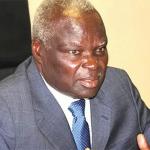Over eight years after the adoption of the 2030 Agenda and its 17 SDGs in 2015, and past the halfway point to 2030, the world is facing major interlinked crises, challenges and trends, impacting the capacity of countries to achieve the SDGs.
This session of the 2024 ECOSOC High-level Segment focuses on current trends and their impacts. It will address the current impacts of major global trends on the realization of the 2030 Agenda and the achievement of the SDGs as well as their potential long-term impacts on advancing sustainable development in the future.
These trends include the changing global economy, changes and transitions in labour markets, rapid technological change, thecontinuing and intensifying adverse impacts from climate change, and the evolving nature of social contracts. While aspects of these trends can yield constructive outcomes, there are also negative impacts that have the potential to hinder and reverse progress across the SDGs and that would be faced predominantly by vulnerable countries and communities.
The session will present different perspectives and experiences on current trends affecting SDG implementation. It will engage Ministers and other participants and stakeholders in a dialogue on addressing current trends and their accompanying challenges and providing forward-looking solutions for advancing sustainable development. It will consider coordinated global policies and high-impact actions to deliver a better future for all that leaves no one behind. The session will also discuss multilateral collaboration and the support from international institutions needed for the full implementation of the 2030 Agenda at all levels, to the year 2030 and beyond.
The discussion will be informed by the Secretary-General’s reports on “Long-term impacts of current trends on the realization of the Sustainable Development Goals” (E/2024/55) and on the 2024 ECOSOC and HLPF theme (E/2024/52).
Proposed guiding questions:
- What are significant current trends and their potential long-term impacts and implications for the future achievement of the SDGs?
- What actions have been successful in addressing these current trends with a view towards fully undertaking the necessary transitions for advancing sustainable development?
- How can these actions be scaled up to unlock the rapid and deep transitions needed to deliver on the SDGs?
- How can multilateral collaboration and international institutions be improved to better contribute to SDG progress and support the key transitions to sustainable development to the year 2030 and beyond?
Chair:
- H.E. Ms. Paula Narváez, President of the Economic and Social Council
Interactive panel discussion
Moderator:
- Mr. Amar Bhattacharya, Senior Fellow, Center for Sustainable Development, Global Economy and Development Program, Brookings
Panellists:
- H.E. Ms. Alicia Bárcena, Secretary of Foreign Affairs, Mexico
- H.E. Dr. Vindhya Vasini Persaud, Minister of Human Services and Social Security, Guyana
- Mr. Guy Ryder, Under-Secretary-General for Policy of the United Nations
- Mr. JoséAntonio Ocampo, Professor, Columbia University, and Member of the Committee for Development Policy (CDP)
Lead Discussant:
- Ms. Anita Dywaba, Next Generation Fellow, United Nations Foundation
Ministerial Respondents:
- H.E. Mr. Ossian Smyth, Minister of State, Ireland
- H.E. Mr. Said Mohammed Al Saqri, Minister of Economy, Oman
- H.E. Mr. Abdulaziz bin Nasser bin Mubarak Al Khalifa, Secretary General of the National Planning Council, Qatar
- H.E. Mr. July G Moyo, Minister of Public Service, Labour and Social Welfare, Zimbabwe
Interventions by other Ministers and participants (up to 2-3 minutes each)
 Welcome to the United Nations
Welcome to the United Nations






